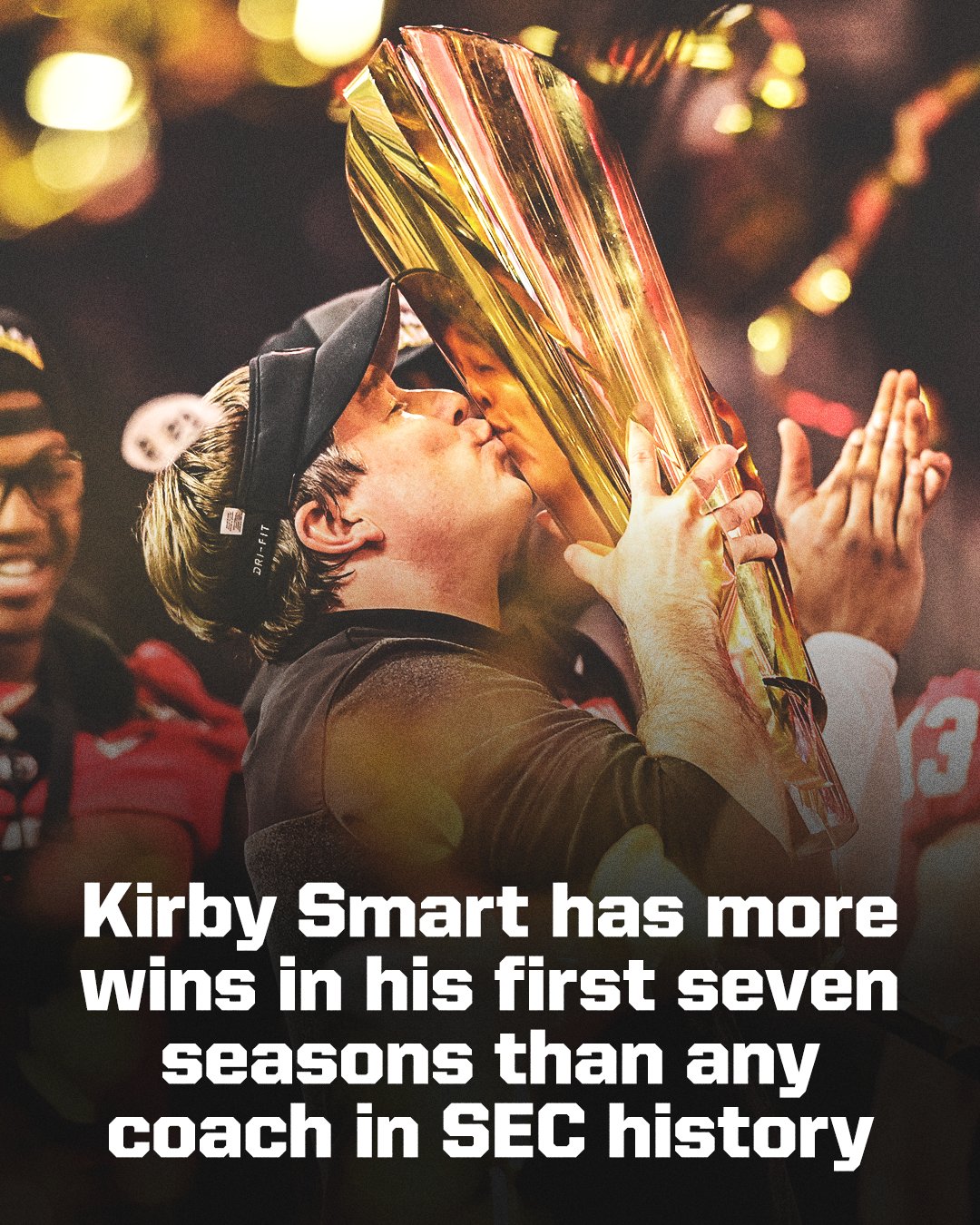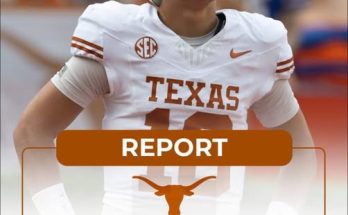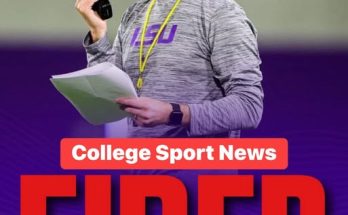The Last Dynasty of College Football: Comparing Kirby Smart and Nick Saban’s Postseason Legacies
For over a decade, Alabama’s football program under Nick Saban represented the gold standard of college football dominance. His reign, spanning from his first national title with the Crimson Tide in 2009 to his final championship in 2020, cemented his place as one of the greatest—if not the greatest—coaches in the sport’s history. In comparison, Kirby Smart, Saban’s former defensive coordinator and current Georgia head coach, has emerged as the closest thing to a successor, crafting his own winning culture in Athens. However, a closer look at their postseason records—Saban’s 18-6 versus Smart’s 8-5—illustrates the gulf between an era-defining dynasty and a strong contender trying to etch its own place in history.
Nick Saban’s Unmatched Dominance
When discussing Saban’s legacy, it is essential to understand the sustained excellence he maintained at Alabama. With nine SEC titles and six national championships, his program consistently competed at the highest level. What separated Saban from his peers was his ability to reload rather than rebuild. Alabama never had “down years” under his watch; instead, the Tide managed to remain a fixture in the College Football Playoff (CFP) era and beyond.
Saban’s 18-6 postseason record, which includes SEC Championship Games, bowl games, and CFP appearances, speaks volumes about his ability to win when it mattered most. Whether it was the BCS National Championship system or the CFP, Saban adapted his strategies and recruited players who fit his system. He won national titles in 2009, 2011, 2012, 2015, 2017, and 2020, with each championship run highlighting different aspects of his coaching genius—whether it was a suffocating defense (2011), a dominant rushing attack (2012), or the evolution of Alabama’s passing game (2020).
Saban’s ability to consistently defeat top-tier competition solidified Alabama as the last true dynasty in college football. His postseason success was fueled by meticulous preparation, elite talent acquisition, and adaptability that left rivals struggling to keep pace.
Kirby Smart’s Postseason Record: A Strong Contender, But Not Quite a Dynasty
Kirby Smart took over Georgia’s program in 2016 and has quickly turned it into a national powerhouse. With two national titles in 2021 and 2022, Smart has proven that he can build a championship-winning team. His 8-5 postseason record includes SEC title games, CFP appearances, and other bowl games, showcasing his ability to compete at the highest level.
Under Smart, Georgia has become known for its elite defense, disciplined play, and physicality, much like the Alabama teams he helped coach under Saban. However, there are key differences between Smart’s run at Georgia and Saban’s Alabama dynasty. While Smart’s Bulldogs have been dominant in recent years, they haven’t maintained the same level of consistent postseason excellence. The 2023 season ended without a national title, marking the first time since 2019 that Georgia failed to win it all.
The comparison of postseason records—Smart’s 8-5 versus Saban’s 18-6—shows that while Georgia is a top-tier program, it has not yet reached the level of sustained success that Alabama enjoyed under Saban. Smart’s winning percentage in postseason play is strong, but he will need to continue stacking titles and high-stakes victories to approach Saban’s legacy.
The Challenges of Sustaining a Dynasty in Today’s College Football
One of the biggest reasons Saban’s Alabama run is unlikely to be surpassed is the changing landscape of college football. The rise of NIL (Name, Image, and Likeness) deals, the transfer portal, and expanded playoff formats have made it more difficult to maintain a dynasty in the modern era.
During Saban’s peak, Alabama could dominate recruiting and player development, ensuring a steady pipeline of elite talent. Now, top players have more options, and roster turnover has become a bigger challenge. While Smart has proven to be an elite recruiter, the question remains: can he sustain success at the level Saban did for over a decade?
Additionally, the expansion of the CFP to 12 teams in 2024 will make winning multiple championships even harder. Saban navigated a four-team playoff format with incredible efficiency, but a larger field means more opportunities for upsets and injuries. Smart’s ability to adapt to these new challenges will determine whether Georgia can maintain its status as the new powerhouse of college football.
The Verdict: Will Smart Ever Reach Saban’s Level?
While Kirby Smart is building an impressive resume at Georgia, the reality is that surpassing Nick Saban’s legacy is almost impossible. Saban’s sustained success over more than a decade, his 18-6 postseason record, and his six national titles put him in a category of his own.
Smart has positioned Georgia as the premier program in college football over the past few seasons, but maintaining that dominance for a decade or more will be an immense challenge. The new landscape of college football, coupled with the difficulty of sustaining dominance in a competitive SEC, makes it unlikely that we will ever see another dynasty like Saban’s Alabama.
In the end, Alabama’s dynasty under Saban will likely be remembered as the last great dynasty of college football. While Smart and Georgia may continue to be a powerhouse, the era of one team ruling the sport for an extended period appears to be over. The sport has evolved, and with it, the days of sustained dominance may be a thing of the past.
The Last Dynasty of College Football: Comparing Kirby Smart and Nick Saban’s Postseason Legacies
For over a decade, Alabama’s football program under Nick Saban represented the gold standard of college football dominance. His reign, spanning from his first national title with the Crimson Tide in 2009 to his final championship in 2020, cemented his place as one of the greatest—if not the greatest—coaches in the sport’s history. In comparison, Kirby Smart, Saban’s former defensive coordinator and current Georgia head coach, has emerged as the closest thing to a successor, crafting his own winning culture in Athens. However, a closer look at their postseason records—Saban’s 18-6 versus Smart’s 8-5—illustrates the gulf between an era-defining dynasty and a strong contender trying to etch its own place in history.
Nick Saban’s Unmatched Dominance
When discussing Saban’s legacy, it is essential to understand the sustained excellence he maintained at Alabama. With nine SEC titles and six national championships, his program consistently competed at the highest level. What separated Saban from his peers was his ability to reload rather than rebuild. Alabama never had “down years” under his watch; instead, the Tide managed to remain a fixture in the College Football Playoff (CFP) era and beyond.
Saban’s 18-6 postseason record, which includes SEC Championship Games, bowl games, and CFP appearances, speaks volumes about his ability to win when it mattered most. Whether it was the BCS National Championship system or the CFP, Saban adapted his strategies and recruited players who fit his system. He won national titles in 2009, 2011, 2012, 2015, 2017, and 2020, with each championship run highlighting different aspects of his coaching genius—whether it was a suffocating defense (2011), a dominant rushing attack (2012), or the evolution of Alabama’s passing game (2020).
Saban’s ability to consistently defeat top-tier competition solidified Alabama as the last true dynasty in college football. His postseason success was fueled by meticulous preparation, elite talent acquisition, and adaptability that left rivals struggling to keep pace.
Kirby Smart’s Postseason Record: A Strong Contender, But Not Quite a Dynasty
Kirby Smart took over Georgia’s program in 2016 and has quickly turned it into a national powerhouse. With two national titles in 2021 and 2022, Smart has proven that he can build a championship-winning team. His 8-5 postseason record includes SEC title games, CFP appearances, and other bowl games, showcasing his ability to compete at the highest level.
Under Smart, Georgia has become known for its elite defense, disciplined play, and physicality, much like the Alabama teams he helped coach under Saban. However, there are key differences between Smart’s run at Georgia and Saban’s Alabama dynasty. While Smart’s Bulldogs have been dominant in recent years, they haven’t maintained the same level of consistent postseason excellence. The 2023 season ended without a national title, marking the first time since 2019 that Georgia failed to win it all.
The comparison of postseason records—Smart’s 8-5 versus Saban’s 18-6—shows that while Georgia is a top-tier program, it has not yet reached the level of sustained success that Alabama enjoyed under Saban. Smart’s winning percentage in postseason play is strong, but he will need to continue stacking titles and high-stakes victories to approach Saban’s legacy.
The Challenges of Sustaining a Dynasty in Today’s College Football
One of the biggest reasons Saban’s Alabama run is unlikely to be surpassed is the changing landscape of college football. The rise of NIL (Name, Image, and Likeness) deals, the transfer portal, and expanded playoff formats have made it more difficult to maintain a dynasty in the modern era.
During Saban’s peak, Alabama could dominate recruiting and player development, ensuring a steady pipeline of elite talent. Now, top players have more options, and roster turnover has become a bigger challenge. While Smart has proven to be an elite recruiter, the question remains: can he sustain success at the level Saban did for over a decade?
Additionally, the expansion of the CFP to 12 teams in 2024 will make winning multiple championships even harder. Saban navigated a four-team playoff format with incredible efficiency, but a larger field means more opportunities for upsets and injuries. Smart’s ability to adapt to these new challenges will determine whether Georgia can maintain its status as the new powerhouse of college football.
The Verdict: Will Smart Ever Reach Saban’s Level?
While Kirby Smart is building an impressive resume at Georgia, the reality is that surpassing Nick Saban’s legacy is almost impossible. Saban’s sustained success over more than a decade, his 18-6 postseason record, and his six national titles put him in a category of his own.
Smart has positioned Georgia as the premier program in college football over the past few seasons, but maintaining that dominance for a decade or more will be an immense challenge. The new landscape of college football, coupled with the difficulty of sustaining dominance in a competitive SEC, makes it unlikely that we will ever see another dynasty like Saban’s Alabama.
In the end, Alabama’s dynasty under Saban will likely be remembered as the last great dynasty of college football. While Smart and Georgia may continue to be a powerhouse, the era of one team ruling the sport for an extended period appears to be over. The sport has evolved, and with it, the days of sustained dominance may be a thing of the past.
What’s Next for College Football?
As we move into a new era, multiple programs will be vying for the top spot in college football. Teams like Michigan, Ohio State, and USC are making significant moves, while programs such as LSU and Florida State aim to return to prominence. With the expanded playoff, more teams will have the opportunity to compete for national championships, leading to increased parity.
While Georgia may be the closest thing to a dynasty in the current landscape, the question remains whether Smart can maintain this level of dominance long-term. The sport is changing, and the next great dynasty—if one emerges—will have to navigate challenges that Saban never faced. Until then, Alabama’s reign under Saban remains the benchmark for college football greatness.



